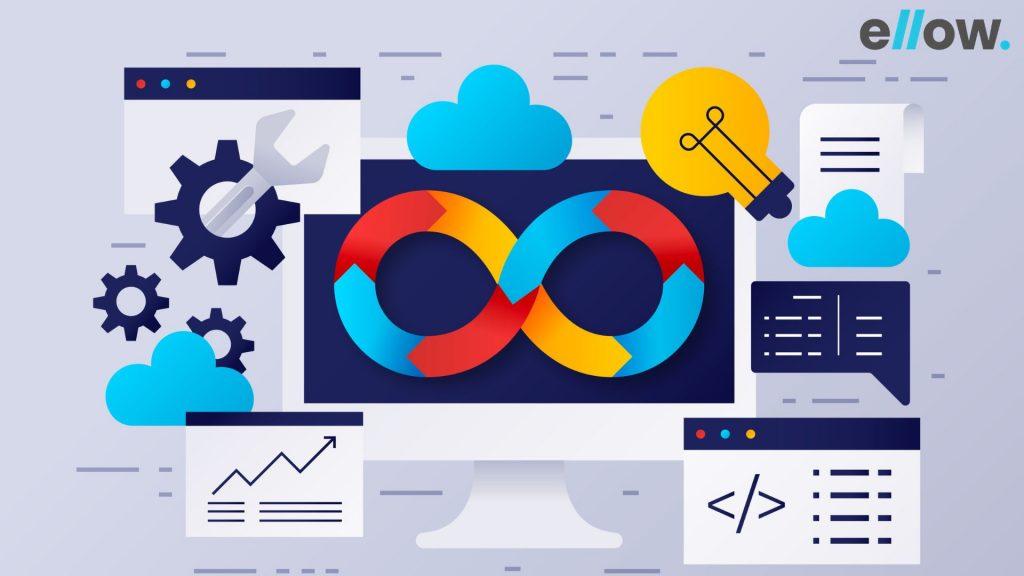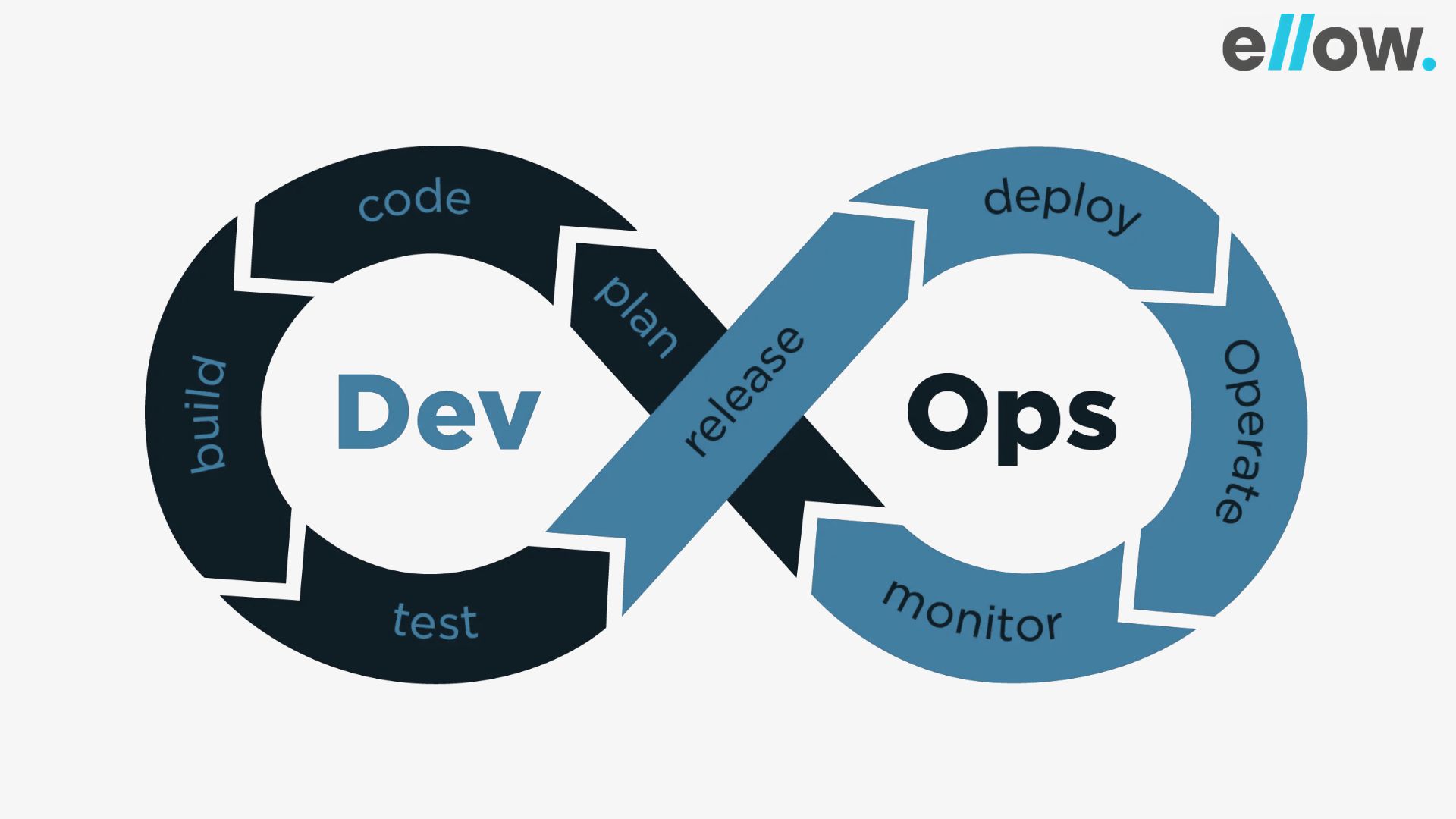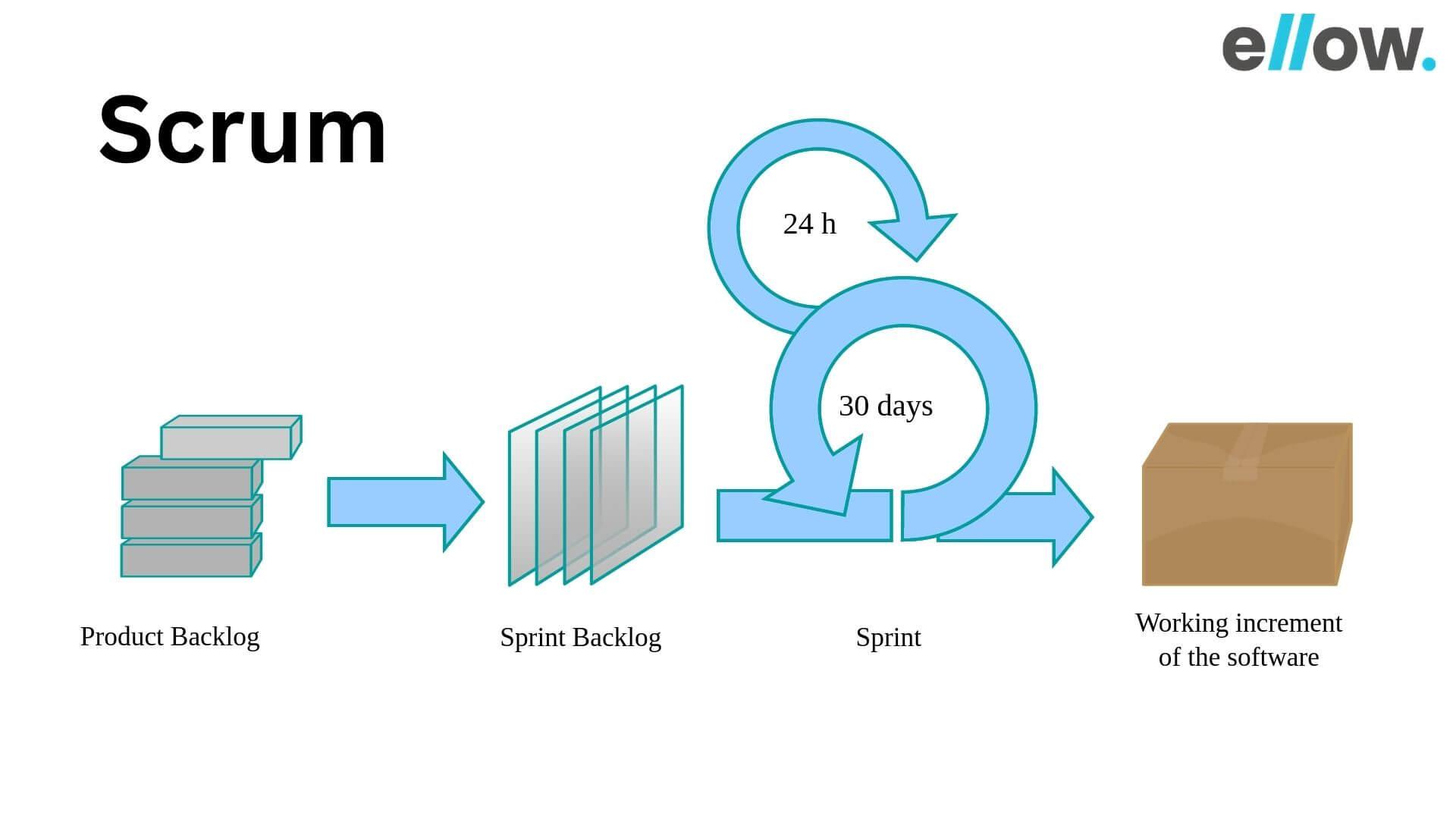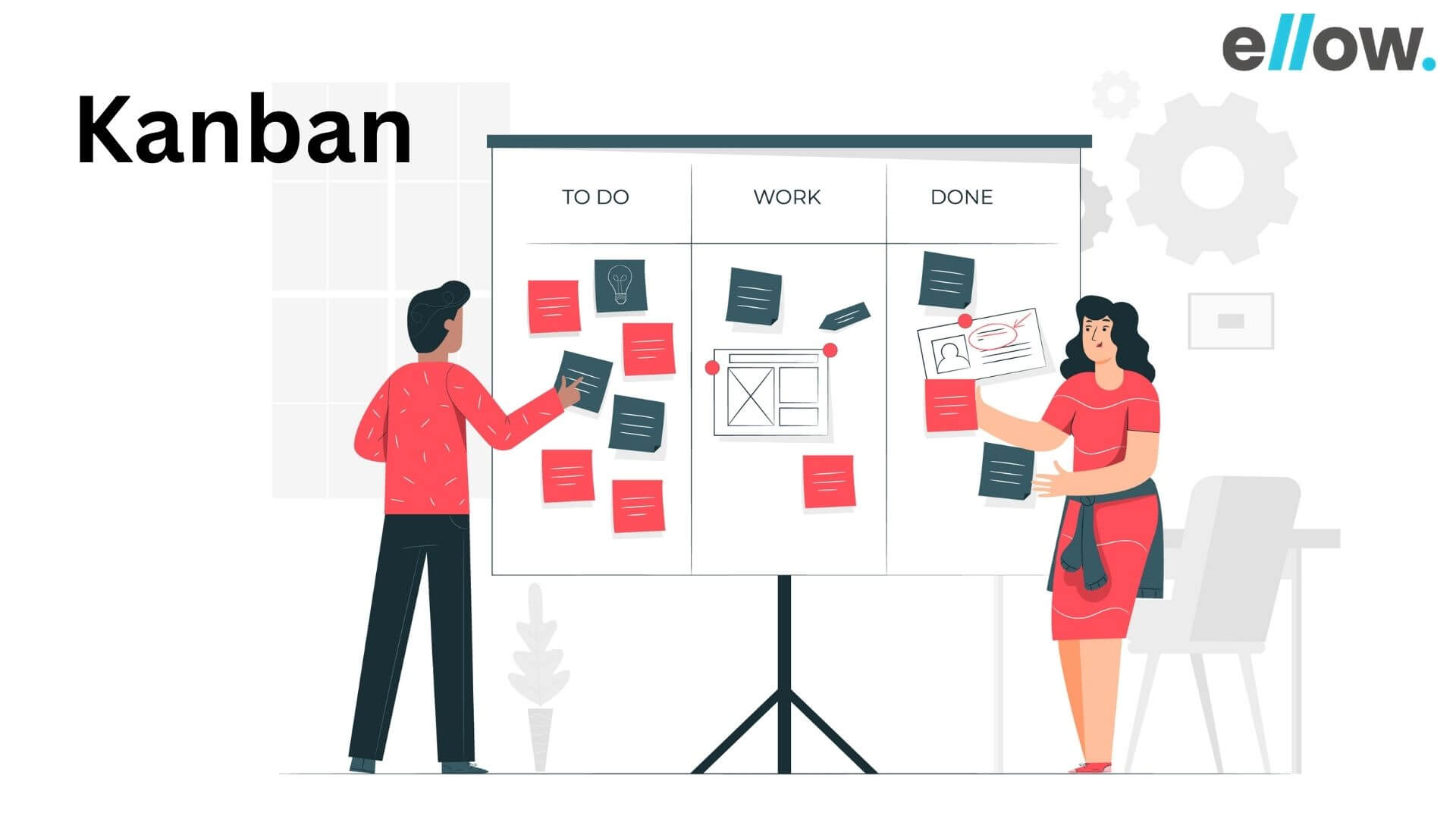Let’s build the future together.
Great ideas need great people. Partner with us to bring your vision to life, or take the first step in your career by joining our team of innovators.
You’ve probably heard that more and more organizations are adopting DevOps globally; it shouldn’t be a surprise. According to the Atlassian Survey 2020 – DevOps Trends, 99% of the respondents said that DevOps had a positive impact on their organization. The same report also indicated other positive trends and highlighted the multiple benefits of DevOps.
The release of a stable product and faster time to market are the prime reasons why more and more organizations are adopting the culture and practices of DevOps.
In this article, we would highlight the benefits of DevOps, but before we do, let us understand DevOps a little better.

DevOps is the combined abbreviation of “Development” and “Operations“. It is a modern and collaborative approach to software development where the development and operations teams work collaboratively throughout the application life cycle.
It helps in aligning business goals, reducing time to market, and building a more stable and secure product. DevOps is not only about using tools or a set of practices; it is a culture.
The term DevOps was coined in 2009 by Patrick Debois, a Belgian IT consultant, and has since gained widespread adoption in the software industry.
Before DevOps, IT operations and software development were typically kept apart, with minimal interaction or cooperation between the two departments. This led to a number of challenges, including slow release cycles, poor quality software, and high error rates in production environments.
As a result of these challenges, DevOps emerged to streamline software development lifecycles with greater collaboration and automation. Continuous integration, continuous delivery, and continuous deployment are key DevOps practices that enable teams to release software updates quickly and reliably.
Today, DevOps has become a key driver of innovation and agility in the software industry, with many organisations adopting DevOps principles and practises to stay competitive in a fast-paced and ever-changing marketplace.

DevOps lifecycle or the components of the DevOps is one of the major reasons for its success.
It can be broken down into four major parts:
The continuous cycle of development, integration, testing, and feedback is what produces results faster in DevOps.
Now let us look at the benefits
DevOps moves away from the traditional linear structure of the IT industry. The core success of DevOps lies in the fact that it breaks down the silos between cross-functional teams, emphasizes frequent communication and feedback, and automates repetitive tasks.
Each member of the DevOps team aligns their workflows and share responsibilities. It improves collaboration across team members while working towards a single goal of building a high-quality end product.
The collaboration of cross-functional teams not only brings a diverse set of experience and knowledge to the table but faster issue resolution. The continuous feedback and communication loops lead to a quicker status update, project delivery, and shortened delivery and development cycles.
Overall, DevOps creates a culture of continuous learning and collaboration where everyone works towards a shared goal.
According to DevOps research and Assessment (DORA) 2019 State of DevOps report, elite teams deploy 208 times more frequently and 106 times faster than low-performing ones.
One of the major benefits of DevOps is that it speeds up the product development lifecycle and reduces time to market. The DevOps practises of integrated workflow, automation, and extreme collaboration streamline the overall product development cycle.
The continuous integration and delivery pipelines ensure quick iterations and standardised processes. Each step of the lifecycle is tested, integrated, and deployed quickly and efficiently. On the other hand, continuous monitoring and feedback help teams identify issues early, which reduces delay and rework.
Overall, DevOps gives businesses a competitive advantage by making them agile and proactive in responding to business needs and changes.
‘It takes months to find a customer… and seconds to lose one.’ -Vince Lombardi
Your customers are your most valuable asset, and keeping your existing ones happy and satisfied is what will make or break your business in the long run.
It goes without saying that DevOps has a strong customer-focused culture.
Let us look at how:
Overall, DevOps speeds up and streamlines product development, which creates a positive impact on the customers.
When development, testing, and operations teams work in silos, they lack proper communication and collaboration to get work done faster. Teams take more time to work on issues and might end up working on the same thing. It ends up resulting in lower productivity and an inefficient team.
In the DevOps culture, the development and operations teams work closely together, communicating and collaborating whenever needed. The automation of repetitive and manual tasks, such as testing and deployment, saves a lot of time for the developers.
They can use this free time to bring in innovation and develop new features for the product. And as we have mentioned earlier, the cohesive nature of the DevOps team helps in finding quick resolutions and delivering a better product.
Another benefit of DevOps is that it helps build a more secure product.
Today, cyber crimes have become very common, and a single lag in security can cost millions of dollars. DevOps ensures that security measures are taken into consideration at every stage of the product life cycle. The CI / CD pipelines help in detecting security issues early.
It reduces the time between discovery and remediation. Moreover, in DevOps, as automation is prevalent, it reduces the chances of security issues that might be introduced because of human error.
While talking about security in DevOps, often DevSecOps comes into the picture. It is an extension of DevOps, and stands for development, security, and operations.
It integrates application and infrastructure security throughout integration, testing, deployment, and software delivery into Agile and DevOps processes and tools seamlessly.
DevOps is a software development methodology that emphasises collaboration and communication between development and operations teams in order to improve software delivery speed, quality, and reliability. DevOps methods typically involve the use of agile, Scrum, and Kanban practises.

Scrum is a popular project management framework for software development. Scrum values collaboration, accountability, and iterative progress towards a well-defined goal. Scrum teams work in sprints, which are time-boxed periods of development that typically last 2-4 weeks. Daily Scrum meetings are held to review progress and identify any roadblocks that must be overcome.

Kanban is a type of visual management tool that is used to keep track of work in progress. Kanban boards typically include columns that represent various stages of work, such as “To Do,” “In Progress,” and “Done.” Kanban teams are concerned with optimising work flow and reducing waste by limiting the amount of work in progress.

Agile is a software development methodology that emphasizes on flexibility, customer collaboration, and quick response to change. The Agile Method, which values individuals and interactions, working software, customer collaboration, and responding to change over processes and tools, serves as the foundation for agile methods. User stories, daily standup meetings, continuous integration and testing, and iterative development are all examples of agile practices.
When it comes to building and maintaining a successful DevOps culture, there are certain skills that a DevOps engineer must possess. In fact, having the right set of skills is key to driving continuous improvement and efficiency in the software delivery process.
If you’re interested in learning more about skills needed to succeed in DevOps, be sure to read our article on the Top Skills To Look For In A DevOps Engineer.
Most of the global organizations like Etsy, Adobe, Facebook, Amazon, Netflix, HP, and many more have made DevOps an integral part of their software development process due to its benefits. Not only does DevOps accelerate the development process and reduce the time to market for products, it creates a more cohesive and engaging work culture.
If, as an organization, you are considering building your DevOps team, we can help you start building one in less than 48 hours.
The core principles of DevOps include collaboration, communication, automation, and continuous delivery.
Agile is a software development methodology that emphasizes flexibility and collaboration, while DevOps is a set of practices that aims to improve communication and collaboration between software development and operations teams to deliver software quickly and reliably.
The business benefits of DevOps include faster time-to-market, improved quality of software, increased efficiency and productivity, better customer satisfaction, and reduced costs.
The challenges of implementing DevOps include resistance to change, cultural differences between teams, lack of skills and expertise, and the need for continuous improvement.
The future of DevOps looks promising as more organizations are adopting DevOps practices to achieve faster software delivery, better collaboration between teams, and improved software quality.
Yes, DevOps principles can be applied in non-IT industries such as manufacturing, finance, healthcare, and logistics to improve collaboration between teams, automate processes, and deliver products and services more efficiently.
Automation plays a crucial role in DevOps by automating manual processes, reducing errors, and improving efficiency. It enables faster delivery of software by automating the testing, deployment, and monitoring processes.
The benefit of a DevOps pipeline is that it enables organizations to automate the software delivery process, from code commit to production deployment. This results in faster delivery of software, better quality control, and improved collaboration between teams.
Great ideas need great people. Partner with us to bring your vision to life, or take the first step in your career by joining our team of innovators.
Looking to build your career in development? team@ellow.io